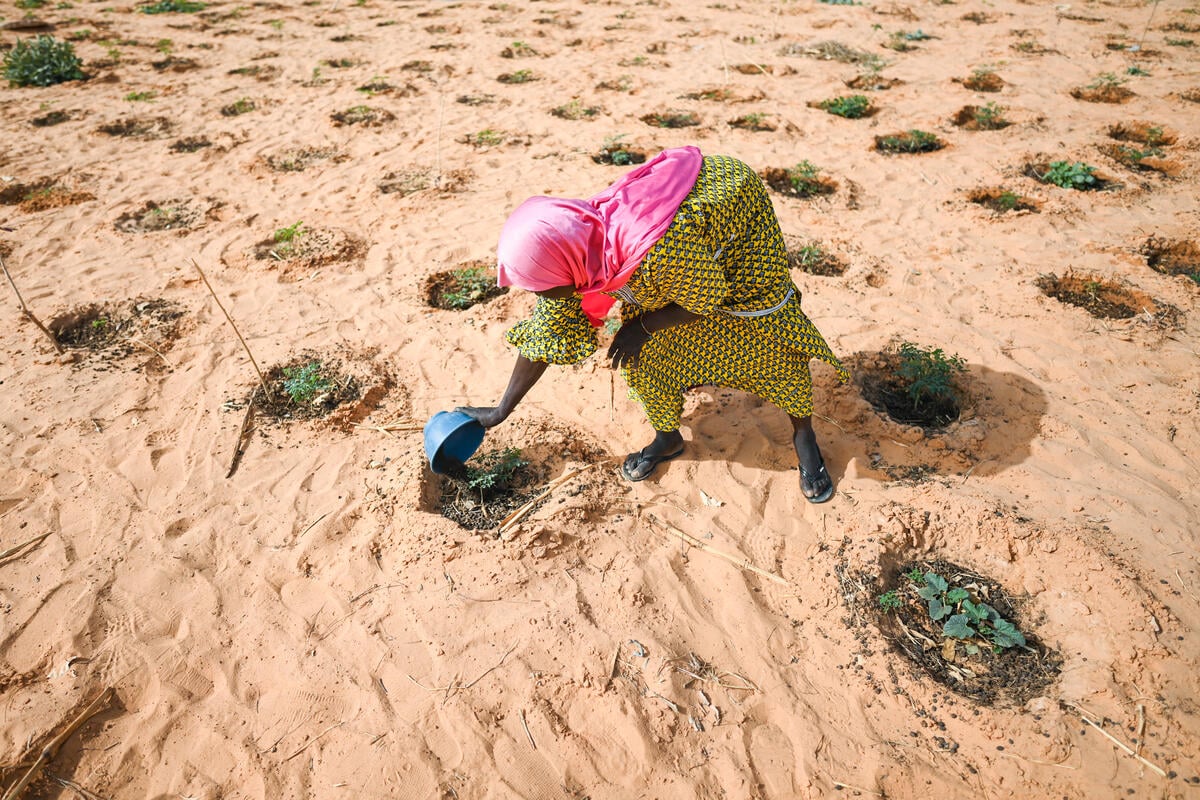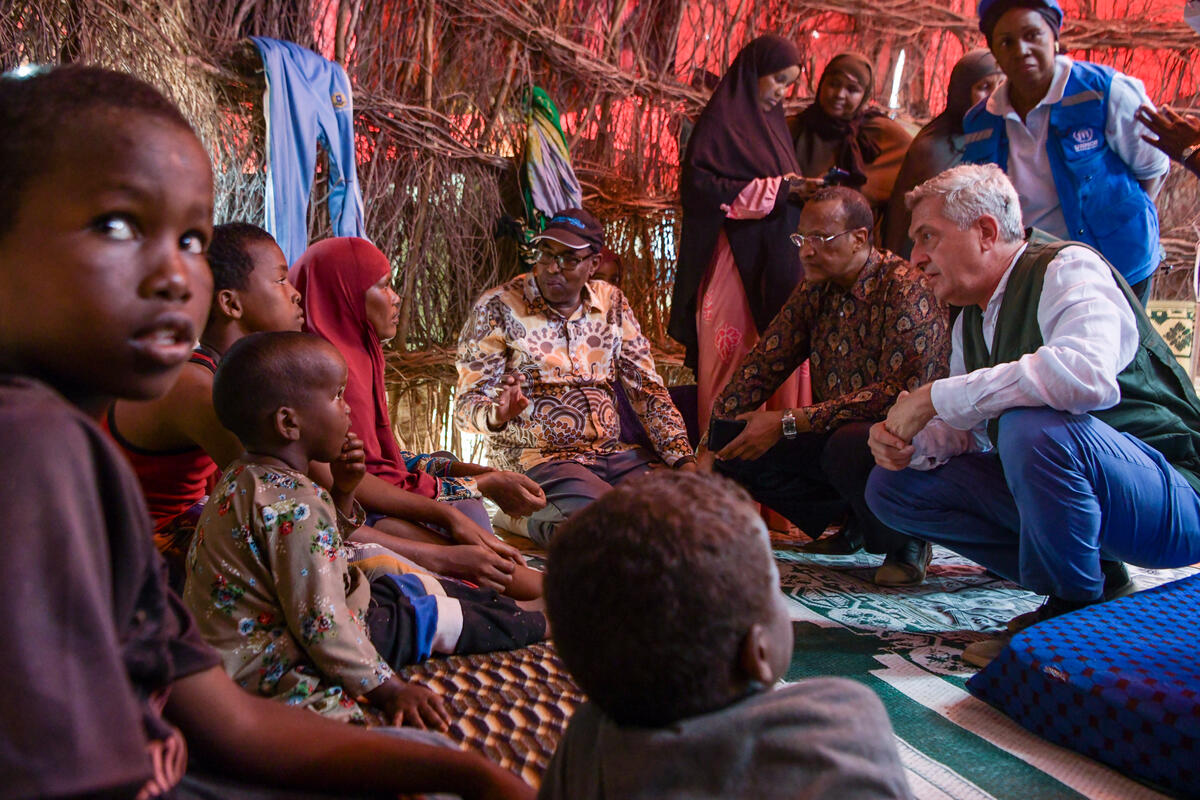The approach of winter threatens thousands of displaced Ukrainians
The approach of winter threatens thousands of displaced Ukrainians

KHARKIV, Ukraine, December 4 (UNHCR) - Dozens of shivering and anxious men, women and children cluster in front of a special building in the eastern Ukrainian city of Kharkiv. "I heard they are distributing winter clothes," said one of them, Aleksandr, who fled his community just outside Donetsk when shells began to fall on his neighbourhood earlier this year. "So I came."
Rumour and word of mouth have brought him and others to the Kharkivskaya Stantsya, one of a network of UNHCR-sponsored collective centres in Ukraine where aid workers distribute essential supplies to some of the 490,000 people uprooted by the fighting and forced to seek shelter elsewhere in the country.
Although the scene of clashes earlier in the year between Ukrainian troops and pro-Russian forces, Kharkiv has been calm since the end of April and is now a haven for many of the internally displaced. But it is not far from the conflict, which continues despite a ceasefire agreement in September.
At the Kharkivskaya Stantsya, people are handing out the winter clothes that Aleksandr had heard about as well as extra blankets, food and children's supplies. More than 40 such centres are planned, and aid workers are racing against the clock and the elements to distribute cold-weather supplies before the full arrival of winter.
Already people are suffering. "We fled our home on July 29 with just a handful of only the most essential things, mainly summer clothes," explained Aleksandr as he stood in line at the centre. "It's too cold to wear these clothes now."
There are countless others in the same situation, and people are flocking to the centres. Crowds were so large at the Kharkivskaya Stantsya in late November, people waited for hours as workers admitted five people at a time so that they could be supplied with essentials such as flour and rice, warm clothing and blankets, and nappies for families with small children.
But the collective centres are not just attracting the needy. They are drawing volunteers, determined to do their bit during this time of crisis. In some instances, the displaced themselves are lending a hand.
"When I first came to Kharkiv, there was no one on hand to help," said 35-year-old Narine, who fled her home in the city of Donetsk earlier in the year. "I volunteered because I got tired of sitting around and being useless."
Now Narine volunteers at Kharkiv's distribution centre. On the same November day when Aleksandr stood in line outside the facility, Narine laboured inside, helping to fit people with clothing from the centre's stockpile of jackets and winter wear.
Local people are also stepping up. Maksim, a Kharkiv resident, volunteered to work at the centre after the crisis forced him to close his business. "I am lucky," he said, while marshalling the crowd outside the centre. "I lost my job, but [these people] have lost much more - homes, relatives, hope. That's why I help."
UNHCR's regional representative, Oldrich Andrysek, said he was impressed by the dedication of people like Narine and Maksim. "I have never seen such a response from civic society, and I have seen crises in Yugoslavia and Georgia," said Andrysek. "In Ukraine, people just answered the call to help."
Those Ukrainians who have volunteered say they have been inspired both by the charity of their fellow citizens and by the international response. Donations include 10,000 items of winter clothing, 100,000 blankets and 360 rolls of tarpaulin for repairing the roofs of leaky shelters.
"One thing makes me happy," said Narine. "In these hard times an army of people came to rescue those in need. And not only in Ukraine. Look at the parcels on the floor. Some are from Germany, Great Britain, even the USA."
"I help as I can," explained Maksim. "I feel it's my civic duty. While others help by fighting in the war, I help those who have been affected by it."
By Rafał Kostrzyński in Kharkiv, Ukraine








